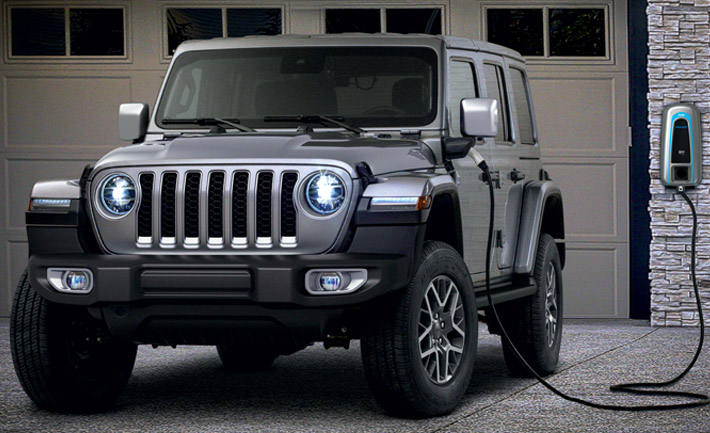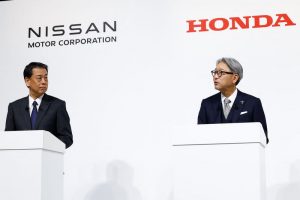The venture between European carmaker Stellantis and Guangzhou Automobile Group Co (GAC) to manufacture Jeep vehicles in China will file for insolvency, the companies said on Monday.
Stellantis said it had fully diminished the value of its investment in the joint venture in its results for the first six months of the year. However, the automobile maker would continue to provide service to its Chinese Jeep customers.
The move follows a lengthy sales plunge for the oldest foreign auto brand in the world’s largest market.
Also on AF: China EV Giants Revved Up For European Sales Drive
China’s GAC approved the bankruptcy filing, adding that the joint venture had liabilities of almost 111% of its assets of 7.3 billion yuan ($1 billion).
Stellantis had terminated the venture with GAC in July, only months after it said it would raise its stake in the business from 50% to 75%.
In the following days, GAC criticised Stellantis and said it was “deeply shocked” by comments from the European carmaker about the end of their joint venture in China.
“Political influence” in business
Sales for the venture, which sold the Jeep Cherokee SUV and the Compass crossover, have been in sharp decline for the past four years. Sales fell by 50% in 2021 from the previous year to 20,396 vehicles.
For 2022, it sold fewer than 2,000 vehicles. In May, it reported selling only a single vehicle.

“The political influence” in doing business with its partners in China was growing, Stellantis Chief Executive Officer Carlos Tavares said when reporting financial results in July.
Earlier this month, Tavares said Chinese automakers should be subject to the same tariffs when exporting cars to Europe as European brands face when exporting to China.
China carmakers’ confidence threaten JV model
Foreign automakers saw their share of China’s auto market, now the world’s largest, drop by 5.5 percentage points last year, to 45.6%, according to the China Passenger Car Association (CPCA).
The joint-venture model, which China had insisted on as a condition of investment by foreign automakers, is under threat, said Chee-Kiang Lim, managing director China at Detroit-based consultancy Urban Science.
“The joint-venture policy was originally designed to compel foreign brands to share their brands and technology with local Chinese (automakers) in exchange for access to China’s large, growing auto market,” he said.
Now that Chinese automakers are more “confident that they have closed the gaps with or even surpassed their foreign partners,” he said, “we have to expect more JVs to unwind in the coming years.”
- Reuters, with additional editing from Vishakha Saxena
























